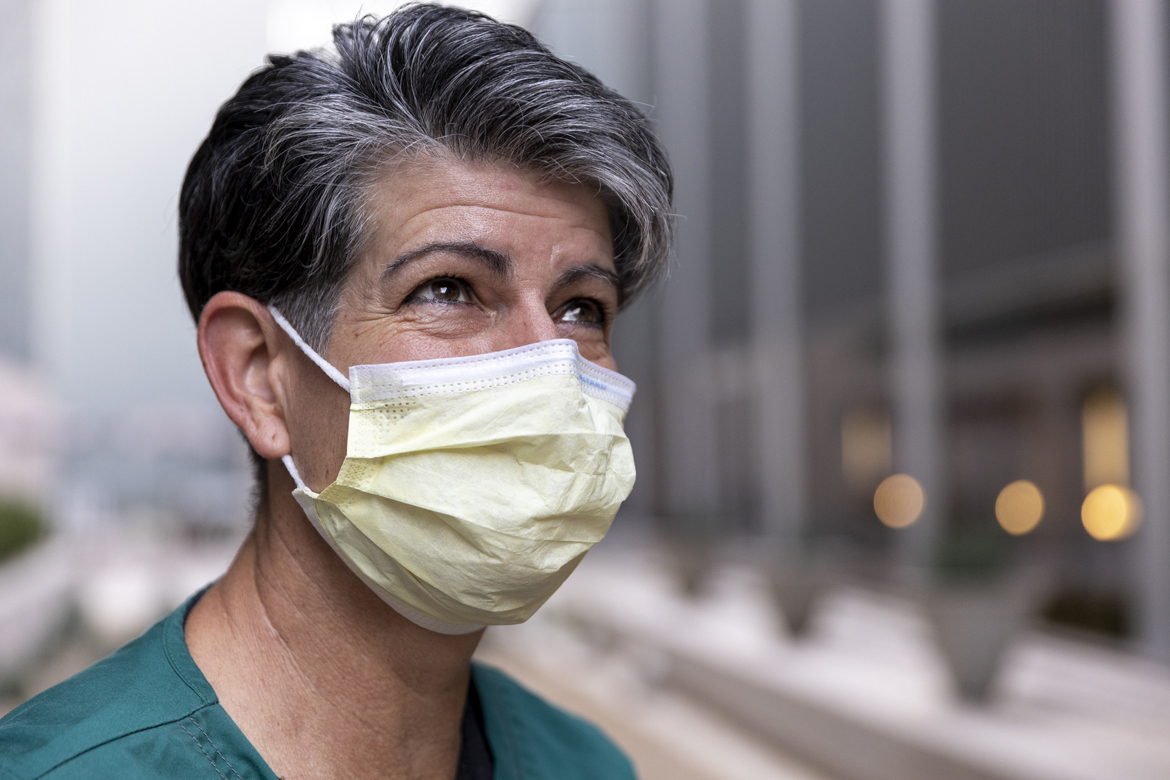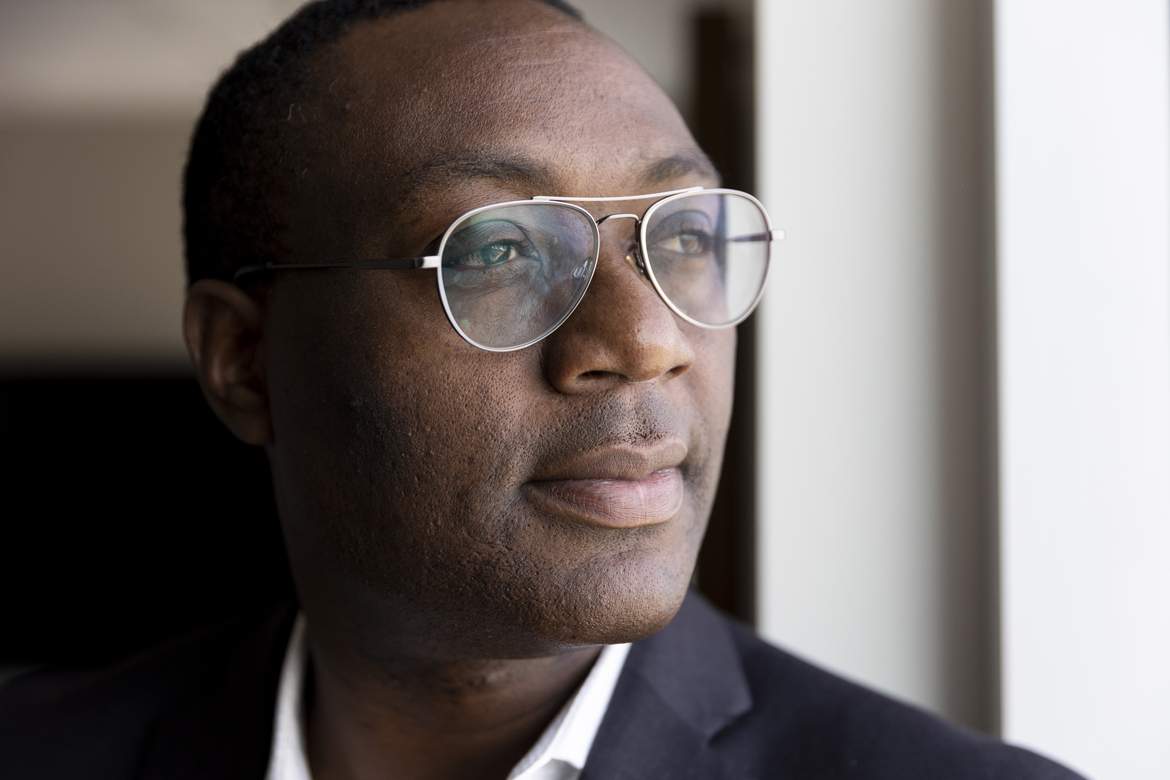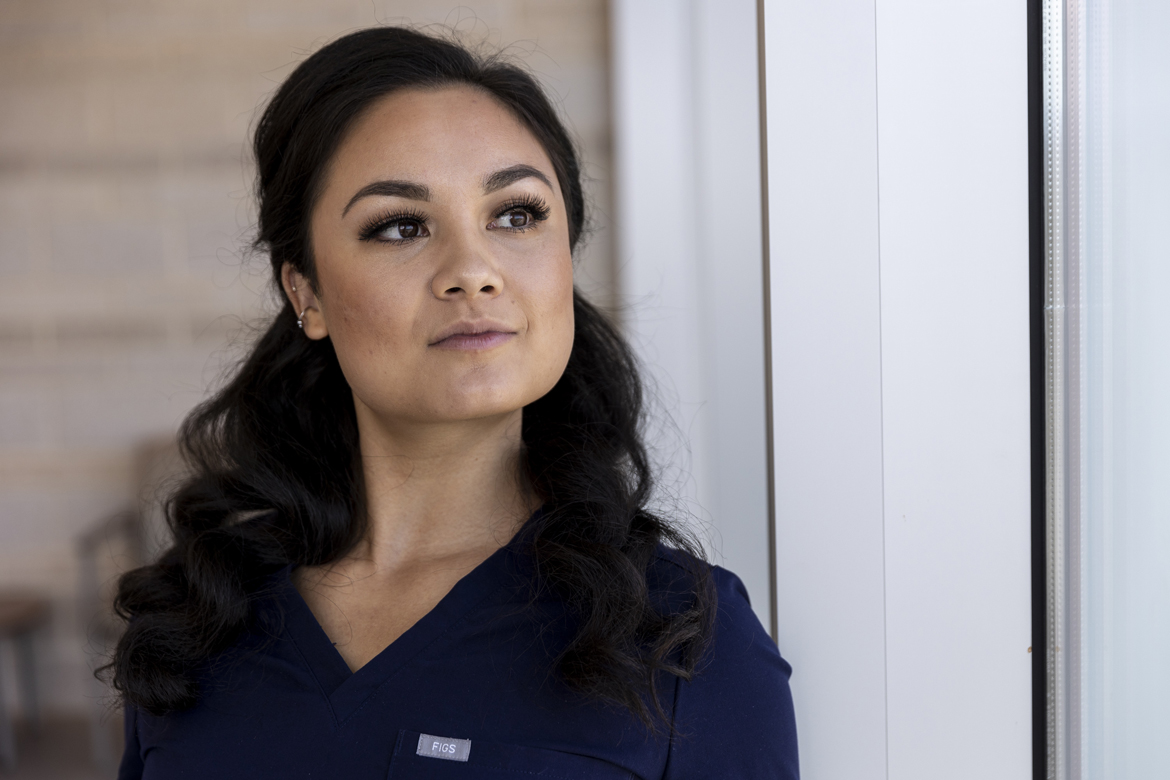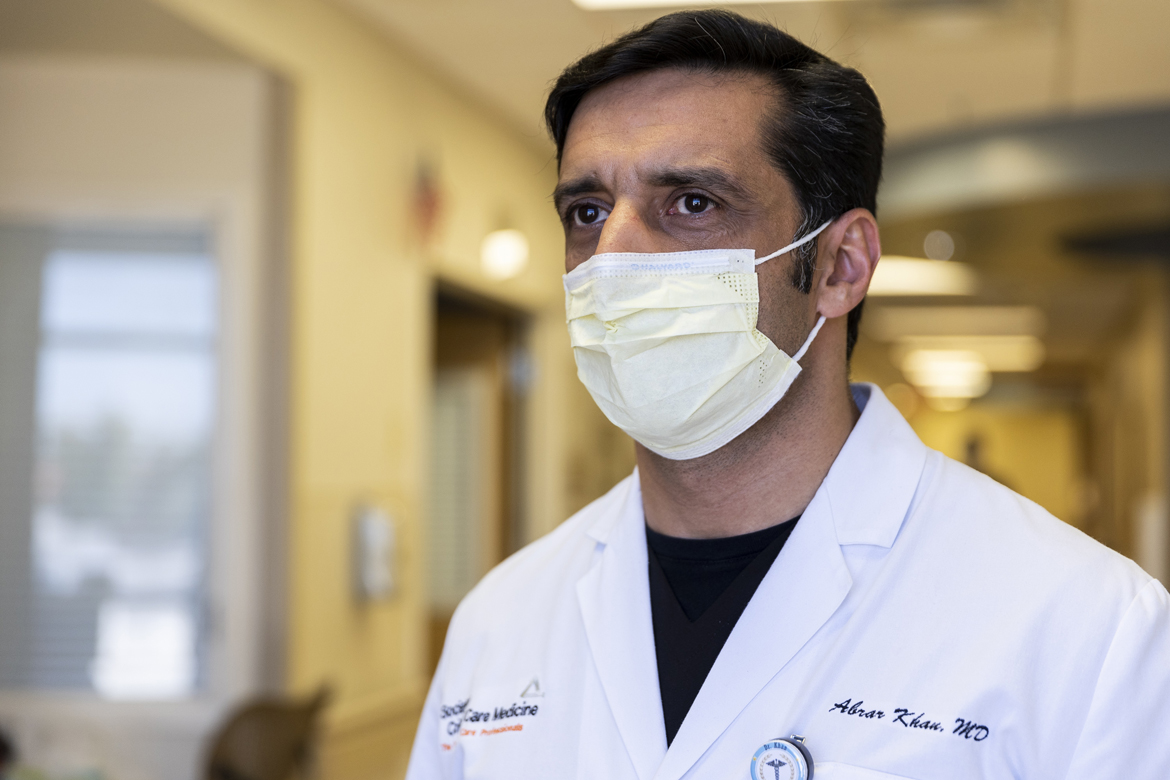Note to editors/producers: Media are encouraged to use any of the content from this special Banner project. Hi-resolution images of the health care workers featured are available for download at the bottom of this article.
Joya Montgomery, respiratory therapist, Banner Estrella Medical Center
Joya Montgomery, a respiratory therapist at Banner Estrella Medical Center, has a long car ride home from work going from the one side of the Valley to the other. Sometimes, she cries on the drive home — processing the often-grueling shift she just endured and wondering what she could have done differently. Montgomery, who intubates COVID patients as part of her job, wants the community to understand how serious the pandemic still is and the magnitude of the strain it puts on her team.
“I get frustrated when I hear people say, ‘It’s really not that bad,’" Montgomery said. “It isn’t that bad when you go to the grocery store, but I go to work and work 12 hours a day and I have double or triple the patients that I normally would have; and I run, I don’t get lunch, I don’t get a drink of water… It’s bad, it’s really bad.”
As pressure continues to be put on our hospitals and health care workers, Montgomery asks that people try to see things from their perspective and to be patient when seeking care.
“If you don’t necessarily have to come to the hospital for maybe what you could go to your doctor’s office for, do that. You might wait a little bit longer, just know that we are not sitting around doing nothing — we are taking care of very, very sick people,” she said. “We love what we do, but there’s a lot of people that we have to take care of. Just be patient — we’re trying.”
While Montgomery has dealt with the pandemic’s harsh realities for the past couple years, she still holds a positive outlook and has hope for the future.
“I have learned that we can work under severe circumstances and that being here does make a difference in every patient's life,” she said. “I am so hopeful for more time with my family and friends, to be able to be out without being so concerned about other people being around us, and to come to work and be hopeful that today will be at a normal pace and make a difference.”
Dr. Christian Bime, intensive care unit director, Banner — University Medical Center Tucson
Dr. Christian Bime, an intensive care unit director at Banner — University Medical Center Tucson, has lived and breathed the COVID-19 pandemic since it began. Dr. Bime and his team take care of some of the sickest patients, as people continue to come in with COVID and other illnesses.
“The evidence is absolutely clear that when you are vaccinated, you are less likely to get critically ill with COVID-19. So for me to be seeing a lot of patients in the ICU (intensive care unit) now, who had a lot of opportunities to get vaccinated and they did not is obviously frustrating,” Dr. Bime said.
Dr. Bime fondly remembers the day he received his COVID vaccination — Dec. 17, 2020. Today, he continues to do everything he can for his patients while advocating for vaccinations as a key to ending the pandemic and getting the world back to a sense of normal.
“We all have to come together to do our part to fight it. It’s not just about personal protection, it’s about protecting the society as a whole,” he said. “And so when you choose to get vaccinated, it’s not just for your protection, but it’s for the protection of those around us.”
Lindsey D’Andrea, intensive care unit nurse, Banner — University Medical Center Tucson
Lindsey D’Andrea, a registered nurse who works in the ICU at Banner — University Medical Center Tucson, said that the pandemic has caused her and her team to grow, but also forced them to constantly adapt to frequent changes and new challenges. D’Andrea sympathizes with the patients and families affected by COVID-19 and wishes the community could see the bigger picture of what goes on within the hospital walls.
“We all wish the community could see how severe COVID is and that it is a real thing, but I really wish that they could see how it affects other people. It affects their families, it affects them, it affects us,” D’Andrea said. “A lot of them did not make it, so that was tough to see their families go through that. Especially when they didn’t see what happened to them while they were here — we did. And it was really hard for us to put that into words,” she said.
“Put yourself in the shoes of a family member who has a patient in here who is terminal. Put yourself in our shoes, and at the end of the day, think about what you value,” she said. “And if you value your life, then there’s help now. A year ago, we didn’t have the vaccine — we have the vaccine now.”
D’Andrea said that while challenging, the past couple years have taught her the importance of spending more time with patients, especially given the fact that many could not have visitors.
“I’ve learned how crucial listening and communicating is, and how rounding on patients and spending a little extra time with them can impact their healing process,” she said. “It was extremely therapeutic and seemed to help the healing process even more while having that emotional need taken care of.”
Dr. Abrar Khan, intensive care unit director, Banner Thunderbird Medical Center
For Dr. Abrar Khan, an intensive care unit director at Banner Thunderbird Medical Center in Glendale, the pandemic has caused immense stress on his life both at the hospital and at home. Dr. Khan, who sees some of the sickest patients at Banner Thunderbird, wishes people would think of the bigger picture when it comes to COVID-19 and the damage it has caused throughout our world.
One of the most frustrating aspects about the pandemic for Dr. Khan has been hearing about people getting their information on COVID-19 or vaccines from social media, rather than talking to their doctor.
“You never question a pilot, ‘How are you going to land this plane?’ So, rather than just looking at some random Facebook post or Twitter or some other source, talk to your provider,” Dr. Khan said.
“I want to assure you that we can live this life the way we remember. We can get back to normal,” he said. “And it is not against one person, one race, one party, or whatever you believe in. It is a collective effort, and we can turn it around.”
Headquartered in Arizona, Banner Health is one of the largest nonprofit health care systems in the country. The system owns and operates 30 acute-care hospitals, Banner Health Network, Banner – University Medicine, academic and employed physician groups, long-term care centers, outpatient surgery centers and an array of other services; including Banner Urgent Care, family clinics, home care and hospice services, pharmacies and a nursing registry. Banner Health is in six states: Arizona, California, Colorado, Nebraska, Nevada and Wyoming. For more information, visit bannerhealth.com.
For further information contact us at: [email protected]



